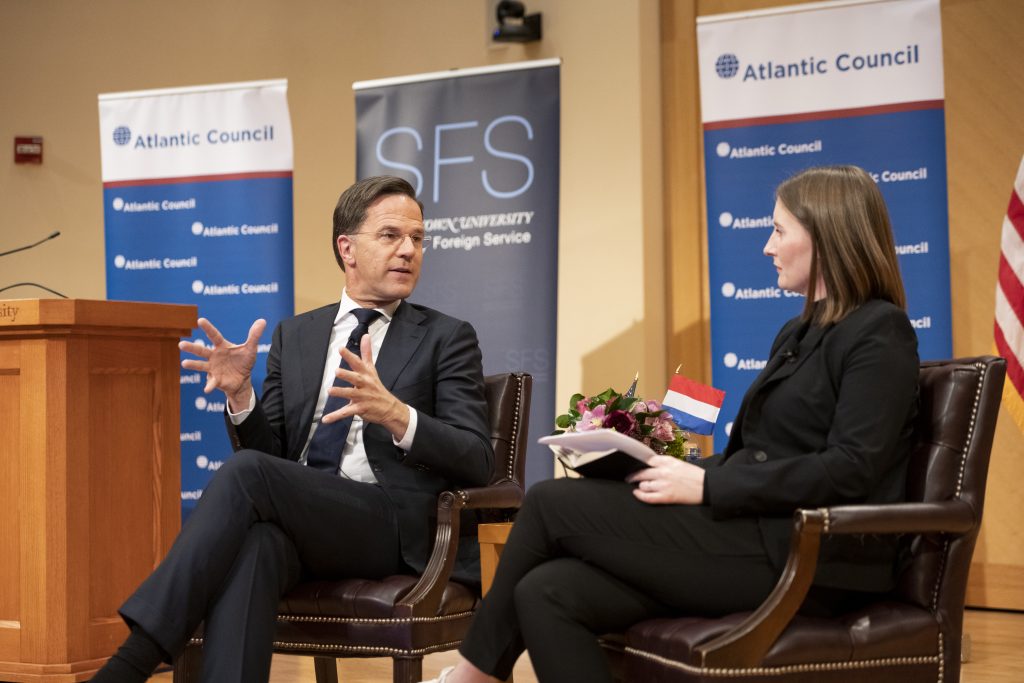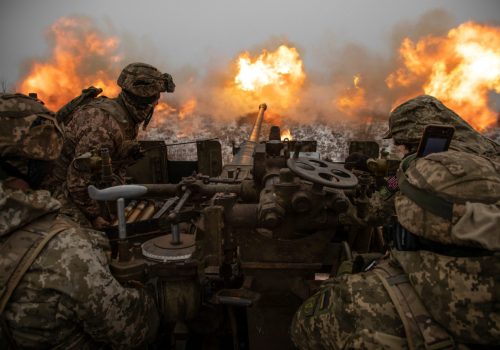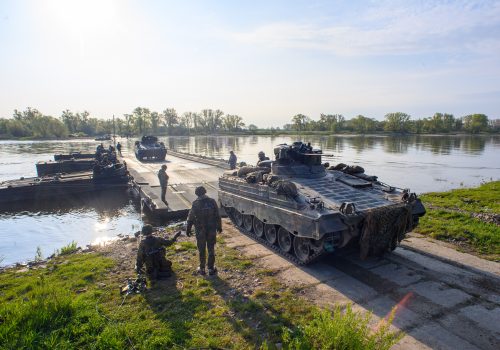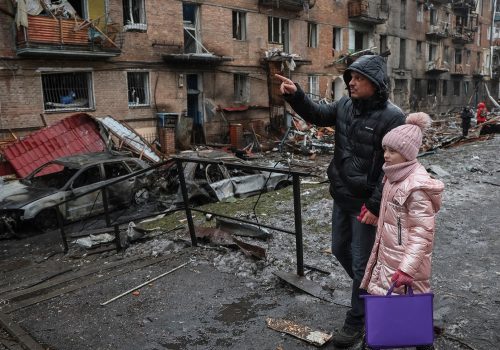The Netherlands is only the fifth-largest economy in the European Union, but it’s punching above its weight when it comes to aiding Ukraine’s fight against Russia, according to Prime Minister Mark Rutte.
Shortly after announcing in an Oval Office meeting with US President Joe Biden that the Netherlands intends to join the US and German effort to send Patriot anti-aircraft batteries to Ukraine, Rutte spoke at an Atlantic Council Front Page event where he cast his nation’s role in the war effort thusly: “We have tried from the start to do whatever we could—and also nudging others to do more.”
Ukraine has asked for nations to send Leopard 2 tanks to support the defense effort, but Rutte wasn’t yet willing to comment on whether the Netherlands, one of a handful of countries with those tanks in their stockpiles, would send them. “What I’ve realized the last ten months is that you are the most effective when you only talk about… decisions that have been taken,” Rutte said Tuesday afternoon on the Georgetown University campus. .
Rutte described frequent discussions, mostly at the defense minister level, among NATO allies about what Ukraine is asking for and how best to get the materiel to the front. “We are constantly dialoguing: What can we do?”
Below are more highlights from Rutte’s conversation with Amy Mackinnon, a national security and intelligence reporter for Foreign Policy magazine.
Arms and accountability
- NATO defense chiefs will gather in Brussels this week, but Rutte said he was not sure if the meeting would produce more concrete movement on the Leopard 2—and it’s not just about Berlin. “Germany is producing the Leopard 2 tanks, but a decision like this has to be broader-based,” he said. “There are many pluses and minuses. So it is not that easy to predict what will happen. But the ask from Kyiv is completely clear.”
- But this effort is not just about weapons deliveries. Rutte said that the Netherlands, which has a history of hosting international tribunals, is working with the Ukrainians and others to make sure Russia is held accountable. Rutte said he hopes The Hague will be the home of a future special tribunal for Russia. “Hopefully one day you will have this debate on the future relationship between the West and Russia,” Rutte said, “but you will also have the accountability issue to be taken care of.”
- Putin is “directly running against our values, what we stand for: that you don’t colonize another country,” Rutte said, which is why he believes it’s essential for Europe to respond aggressively. “If we were to accept for one moment that Putin could be successful in Ukraine, that he would get Kyiv, that he would get the whole country, it won’t end there. History has taught us that.”
The future of Europe and NATO
- The war, Rutte said, has only reinforced the importance of the Alliance to the United States. “My debates with [then US President Donald] Trump on why NATO was necessary was always along these lines,” Rutte said. “If Russia would be able to get a grip of Finland, of large parts of Europe, that would immediately impact the security and safety of the United States. … We have seen the same on a small scale when Hitler used Europe as a springboard to the [United Kingdom].”
- Rutte said that no outside powers can decide whether or not Ukraine should enter into peace talks, comparing it to if Texas were invaded and he called up Biden to tell him to negotiate with the United States’ attackers. “It is only [President Volodymyr] Zelenskyy and his team who can decide when they will go engage in peace talks,” he said.
- Russian use of cyberattacks and disinformation campaigns will continue to be a challenge for the international community, he added. “You have to cobble together many initiatives,” Rutte said, incorporating the business community, skilled scholars, national lawmakers, and NATO. It is a “capability issue” requiring coordination at all levels, he said, with cyberattacks now capable of shutting down physical infrastructure as well as digital infrastructure. “You really get very worried when you think about the possibilities.”
The global landscape
- When asked about whether the Netherlands would restrict semiconductor exports to China, Rutte said it was a difficult balancing act between supporting supply chains for basic technological goods and making sure that some nations aren’t using those technologies for weapons systems. “It is a broader-based debate,” Rutte said, one he discussed with Biden at the White House. Rutte argued that any approach shouldn’t be aimed against just one country.
- The kingdom of the Netherlands includes several Caribbean islands, such as Aruba, Curacao, and St. Maarten, that are autonomous but represent a legacy of colonialism—and Rutte discussed his recent apology for the Dutch role in the slave trade. “This is only the start of a dialogue,” he said, “not just saying sorry and now we continue. It is really taking time and reflecting.”
- At the moment those islands are dealing with a flood of refugees from Venezuela. “I often say it’s not Germany that is our biggest neighbor, but Venezuela,” Rutte said, noting that the Netherlands is trying to help these refugees integrate into the local societies and find jobs. “It is not easy because this is not the richest part of the world… and it is step-by-step trying to help each other.”
Nick Fouriezos is a writer with more than a decade of journalism experience around the globe.
Further reading
Tue, Jan 17, 2023
How Europe can help Ukraine defeat Russia and win the peace in 2023
UkraineAlert By
Continued European support for Ukraine will be crucial in 2023 and must feature a combination of intensification and innovation if Vladimir Putin's invasion is to be decisively defeated, writes Andreas Umland.
Fri, Jan 6, 2023
Experts react: Can new French and German weapons turn the tide in Ukraine?
New Atlanticist By
What do these additions mean for the battlefield? What do they signal about the positioning of France, Germany, and Europe as a whole in this protracted conflict?
Tue, Dec 6, 2022
How Ukraine’s proposed special tribunal for Russian aggression would work
New Atlanticist By Celeste Kmiotek
A special tribunal on Russian aggression would raise questions around jurisdiction, legal details, and the role of the US. Here's how they can be addressed.
Image: The Netherlands Prime Minister Mark Rutte (L) answers a question from Amy Mackinnon of Foreign Policy magazine at an Atlantic Council Front Page event hosted by the Georgetown University School of Foreign Service on January 17, 2023. (Photo by Brandon Payne.)



